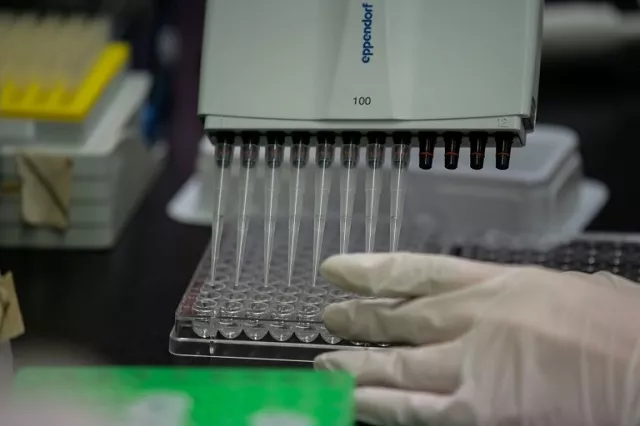DUHS researchers look to boost natural immunity against COVID-19
Health experts identify two gene mutations that may help develop resistance against virus
KARACHI: Health experts at the Dow University of Health Sciences (DUHS) have identified two naturally-occurring genetic mutations they say may help develop immunity to the novel coronavirus.The research, published in a magazine released by the Journal of Medical Virology, concludes that these mutations can help allay the severity of the infection.
This means that as opposed to the current practice of coronavirus patients being hospitalised, put on ventilators and administered medication, further work in the area can make it possible for them to spend the quarantine period in a room at their houses, without requiring any further medical assistance.
Moreover, according to the experts supervised by Dow College of Biotechnology vice-principal Dr Mushtaq Hussain, their findings could help identify the means to control the COVID-19 outbreak. They have suggested using samples collected for virus screening to detect these mutations.
Pandemic will unleash worst recession since Great Depression: IMF
For the purpose of the research, a team of health experts, including Dr Nusrat Jabeen, Dr Fozia Raza, Dr Sanya Shabbir, Dr Ayesha Ashraf Baig, Dr Anusha Amanullah and Dr Basma Aziz, employed genomic data mining for exploring the mutations in thousands of angiotensin-converting enzyme 2 (ACE2) gene samples. This is the gene to which severe acute respiratory syndrome coronavirus 2 – the strain that causes COVID-19 – sticks at the initial stage of the infection.
They then used structural modeling and docking to locate mutations that the help build immunity against the virus and identified them as S19P and E329G.
Discussing the research, Dr Hussain said that gene samples of individuals from China, Latin America and some European countries, which have been badly affected by the pandemic, were used for the purpose. Notably, the frequency of S19P and E329G was found to be very low in all the samples, he added.


COMMENTS
Comments are moderated and generally will be posted if they are on-topic and not abusive.
For more information, please see our Comments FAQ